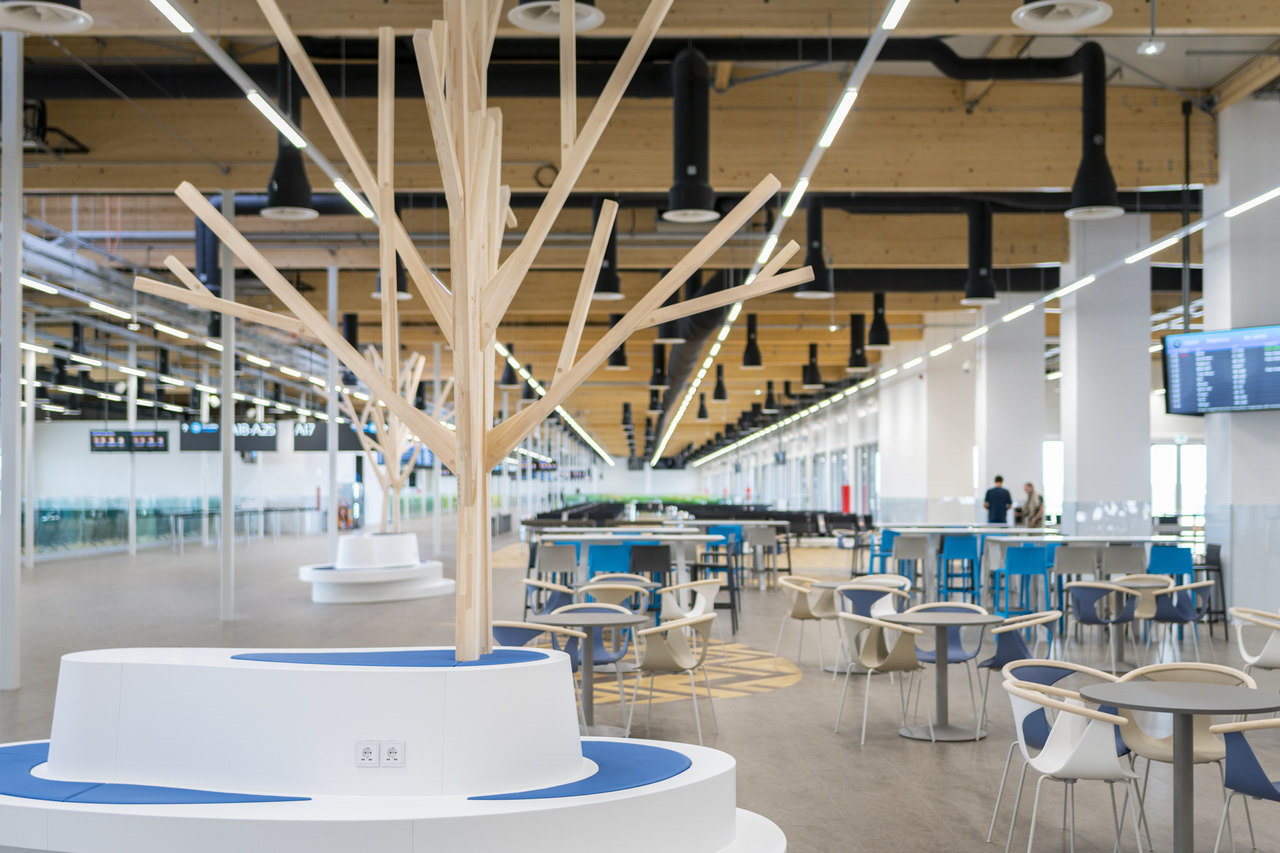Budapest Airport and the Center For Budapest Transport helping blind and partially sighted passengers in an EU project
DANOVA – Innovative transportation services for blind and partially sighted passengers in the Danube Region is a transnational cooperation project financed from the Interreg Danube research and development program of the European Union, aimed at making airports, ports, train and bus stations fully accessible for blind and partially sighted people. Budapest Airport and the Center for Budapest Transport have also joined the transnational initiative.
The consortium of 14 partners is led by Dubrovnik Airport. In the project, Budapest Airport and the Center for Budapest Transport map out the best solutions which can be used at transport hubs and how they can be applied efficiently. BKK and Budapest Airport have also involved the Hungarian National Association for the Blind and Visually Impaired and the Central Hungarian Regional Association for the Blind and Visually Impaired in the project; innovative solutions can thus be implemented maximally adjusted to the needs of visually impaired passengers.
“In addition to safety and security, a high-quality passenger experience is a key priority for Budapest. When we talk about passenger experience and developing passenger services, we are of course thinking of blind and visually impaired passengers, and persons living with other disabilities as well,” said Katalin Valentínyi, chief corporate communications and government relations officer for Budapest Airport. “Disabled access is ensured in most airport areas, and with our contracted medical service partner, we provide every assistance for blind and visually impaired passengers.
The Danova project is an excellent opportunity to expand the scope of our services, enabling all fellow human beings to fly independently, without any problems,” she added.
Dávid Borsi, head of communications and spokesman at the Center for Budapest Transport highlighted that BKK aims to provide the infrastructural conditions for everyone to be able to choose the most rational mode of transport. Additionally, the needs of passengers living with disabilities must be taken into account in the course of developments. He commented: “To this end, we organized sensitizing trainings as part of the recently concluded INCLUSION research and development project, and compiled a complex training material for BKK employees who are in daily contact with customers with reduced mobility or special transport needs. Moreover, we have established a reporting surface, in cooperation with the Járókelő (Passerby) Public Benefit Association, where passengers with special needs can indicate difficulties encountered during transportation.”
There are more than 30 million blind and partially sighted people in Europe who cannot travel independently, as more than 96% of the European transport system, especially in the Danube Region, is still not totally accessible for people with visual impairments. Many blind and partially sighted passengers find it extremely difficult to use conventional transportation, such as aircraft, railways or urban public transportation. The reasons for this are various; blind and partially sighted passengers do not have equal access to up-to-date visual or written information regarding transportation, personnel is often not trained to support and adequately communicate with blind and partially sighted passengers, there is a lack of adequately accessible infrastructure, or differences between national legislations about accessibility exist from country to county.
The international consortium plans to improve access, in the interest of equal opportunities in transportation, by exploring these causes, formulating proposals and introducing new methods and services.
The DANOVA project runs until 31 December 2022, its total budget is 2 192 546.66 euros.

Read alsoBudapest Airport’s developments confirmed by passengers
Source: www.bud.hu
please make a donation here
Hot news
What happened today in Hungary – 26 July, 2024
Drama: number of births in a 20-year low in Hungary
Yay or nay? – 6 odd Hungarian delicacies that make our skin crawl
Budapest tourism “exploded” this past weekend
Container transport in Budapest may stop: How will this affect Hungarian economy?
Minister: Hungary will protect its territory by every means possible




